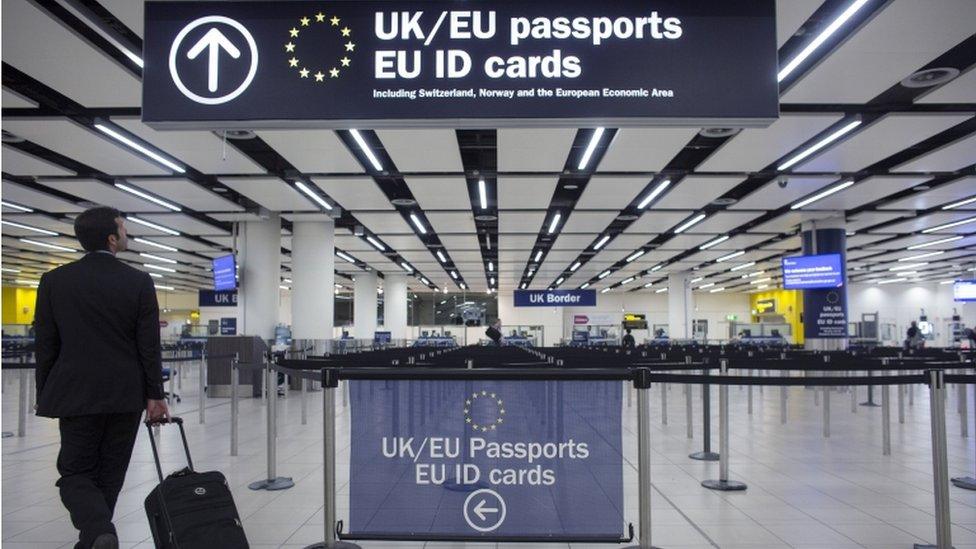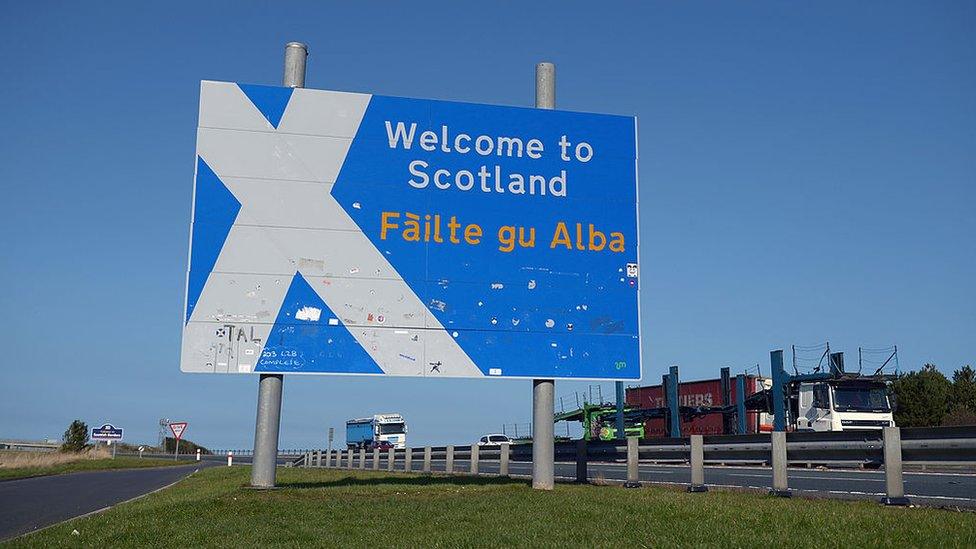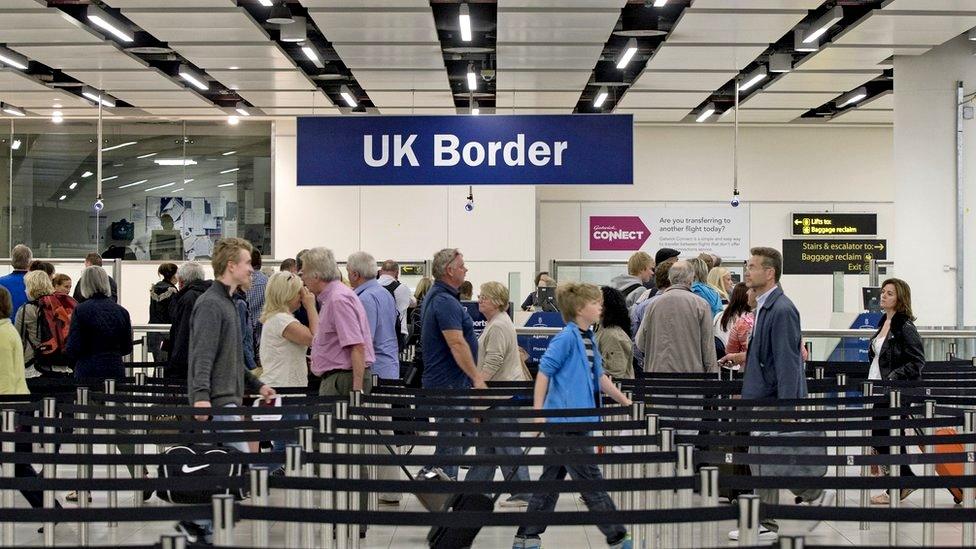Brexit: Home Office advert banned for 'misleading' EU citizens
- Published
- comments

A government advert telling EU citizens what they need to do to stay in the UK after Brexit has been banned.
In a Home Office radio advert aired in April, listeners were told: "All you need to apply is your passport or ID card and to complete an online form".
But the Advertising Standards Authority ruled the claim was misleading, as many applicants were required to submit further documents not stated in the ad.
The Home Office said: "We completely disagree with ASA's decision."
The Home Office advert was promoting the government's EU Settlement Scheme,, external which allows EU citizens and their families to apply to live and work in the UK after freedom of movement ends.
Applicants must prove their identity, show that they live in the UK and declare any criminal convictions.
In its ruling, advertising watchdog the ASA ruled that the proportion of people asked to submit further documents was higher than what the audience was likely to believe from listening to the ad.
"Listeners would likely understand that an official application process of this nature would always require some applicants to provide further information in exceptional cases," the ASA said.
"However, we understood that in 27% of decided adult cases, applicants had been asked to provide documents as evidence of residence.
"Furthermore, some applicants were also asked for other documents, such as evidence of a family relationship."
It added: "In that context, we considered that the ad did not make sufficiently clear that, in some cases, applicants would need to supply documents beyond their passport or ID card."
In response to the complaint, the Home Office insisted the advert was part of a wider campaign promoting awareness of the EU Settlement Scheme.

The Home Office said its website page about the scheme had seen more than five million page views
It told the ASA it was not possible to include all aspects of the application process in a short ad, and listeners were directed to the scheme's website where there was more detailed information.
It argued that - regardless of the application outcome - in 73% of cases people did not have to submit any more documents as evidence of their residence.
'Factual and positive'
The ASA rejected the government's defence and ruled the advert must not be broadcast again in the same format.
It also told the Home Office that, in future, adverts must make clear that applicants may need to provide additional documents.
Responding to the ruling, the Home Office told the BBC: "The campaign was factual and complied with all necessary clearance processes for radio advertising.
"The campaign has had a positive impact and encouraged more than one million successful applications so far."
There are an estimated 3.3 million EU citizens living in the UK - meaning more than two million people have either not registered for the scheme or not been successful.
The Home Office says it spent £3.75m on a marketing campaign to encourage EU citizens to apply early for the EU Settlement Scheme.
In May, MPs warned that government risked another Windrush scandal if "serious concerns" about the scheme were not addressed.
The Commons Home Affairs Committee said the scheme had been "blighted" by technical issues and some people were struggling to navigate the online application system.
The scheme has been open to EU, EEA and Swiss citizens since March of this year, with applications currently having to be made by 31 December 2020 if the UK leaves without a deal, and 30 June 2021 if it leaves with a deal.
Anyone granted settled status will be entitled to the same work, healthcare, housing and education rights after Britain leaves the EU as they do now.

- Published3 September 2019

- Published30 May 2019

- Published22 August 2019

- Published22 August 2019
